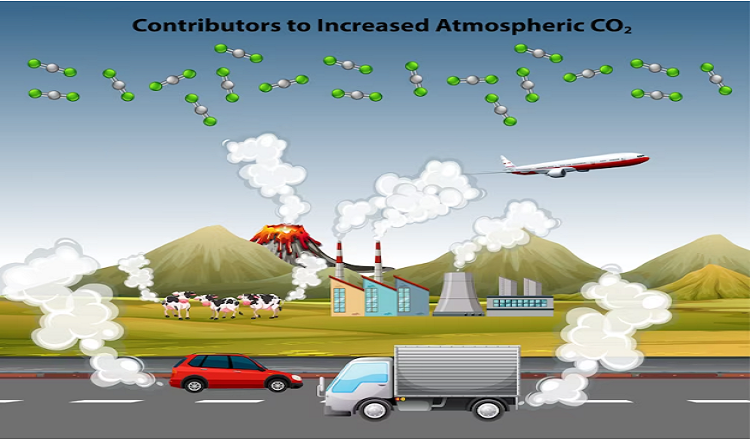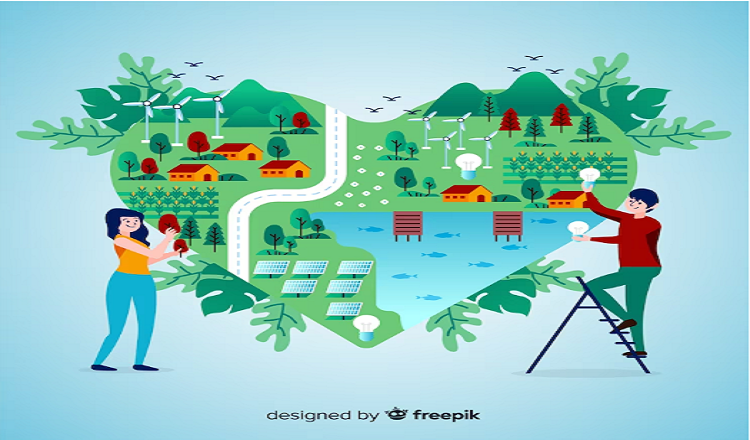Although wildfires are not something to be laughed at, their effects may be hysterically catastrophic. Recent wildfires in Australia were among the deadliest on record, destroying thousands of homes, burning millions of acres of land, and killing an estimated one billion animals. It’s crucial to comprehend the causes and repercussions of these record-breaking wildfires as the globe continues to struggle with the effects of climate change.
Uncontrolled fire that swiftly consumes plants or other combustible materials is referred to as a wildfire. While human activities like campfires and fireworks are also frequent causes of wildfires, environmental factors like lightning strikes and dry weather can also play a role. As a result of rising temperatures and drought conditions, which make it easier for fires to start and spread, the effects of climate change have recently resulted in longer and more catastrophic wildfire seasons.
Australia’s most recent wildfire season was exceptionally disastrous, hitting broad swaths of the nation and seriously harming the environment, property, and animals. It is vital to talk about the causes and impacts of these disasters and strive towards prevention measures as we continue to struggle with the repercussions of climate change. The recent record-breaking wildfires in Australia, their effects on the environment and communities, and the actions being taken to avert similar catastrophes will all be covered in this blog.
what starts wildfires
Although wildfires are a natural occurrence, they have become more frequent and intense recently as a result of both natural and human factors. Wildfires can be started and spread by a variety of natural factors, including lightning strikes, droughts, and heat waves. Fires can also be started by human activity like intentional arson, campfires, pyrotechnics, and even used cigarettes.
Furthermore, the rise in wildfires has been considerably aided by global warming. The drier circumstances brought on by changing precipitation patterns and rising temperatures have made it simpler for fires to start and spread. Additionally, the behaviour of natural wildfire patterns has changed due to climate change, including the length of the wildfire season, making it more challenging for firefighters to put out the fires. In order to lessen the effects of wildfires on people and the environment, it is imperative to address both the natural and human causes of these events, as well as the underlying problem of climate change.
wildfire’s aftereffects
The social fabric of communities, the environment, and the economy can all be significantly impacted by wildfires and their far-reaching effects. Loss of biodiversity is one of the most important environmental effects of wildfires since many plants and animals can’t endure the intense heat and habitat damage. Wildfires can also result in water contamination and soil erosion, making it harder for ecosystems to recover.
In addition to harming property, infrastructure, and tourism, wildfires can also have a large economic impact. Long-term economic loss may result from the loss of houses and businesses, in addition to the cost of combating the fires. Last but not least, wildfires can have a large social impact since they may cause people to lose their homes, suffer from health problems caused by smoke inhalation, and go through emotional distress due to the loss of their community.
Overall, wildfires have a significant influence that can endure a long time on the ecosystem and local residents. It’s crucial
Australia experiences record-breaking wildfires
Some of Australia’s worst wildfires in the nation’s history have broken records in recent years. The Australian government reports that the flames consumed more than 47 million acres of land, over 5,900 structures, and an estimated one billion animals. The two states that were most severely affected by the fires were New South Wales and Victoria.
The fires started in late 2019 and lasted well into 2020, reaching their climax in January. A number of elements, such as high temperatures, dry conditions, and strong winds, were blamed for the length and intensity of the flames. Due to the fires’ considerable negative effects on the environment, communities, and economy, there has been much debate regarding climate change and the need for precautions.
Addressing wildfires
The government, foreign aid, and community activities all play a part in the multifaceted response to wildfires in the United States. Emergency measures like evacuation warnings, firefighting operations, and money for restoration and reconstruction activities are all part of the government response. The impact of wildfires may be addressed by federal, state, and local government entities cooperating.
With donations and help with fighting wildfires coming from nations all around the world, international aid can also play a part in responding to wildfires. For instance, during the disastrous wildfires in California in 2020, Australia, Canada, and Mexico provided firefighting assistance to the United States.
The response of the community is essential in alleviating the effects of wildfires. Assisting with evacuation operations, raising money for relief efforts, and providing support to individuals who have been affected by the fires are all possible examples of this. Overall, to lessen the effects of wildfires and assist people impacted, a coordinated response combining all tiers of government, international assistance, and community activities is required.
Putting out wildfires
In order to lessen the effects of wildfires on communities and the environment, prevention is essential. Education and awareness campaigns are important components of wildfire prevention. To do this, it is necessary to inform people and communities about the dangers and effects of wildfires. It also entails advocating responsible behaviour, such as avoiding open fires and properly disposing of cigarettes.
Changes in policy, such as banning open fires, regulating controlled burns, and enforcing restrictions on pyrotechnics and campfires, can also significantly contribute to the prevention of wildfires. Additionally, technological solutions can help stop the spread of wildfires, such as the use of drones to monitor for fires and early warning systems to inform populations.
Overall, to avoid wildfires and lessen their effects on people and the environment, a comprehensive strategy incorporating education, changes in policy, and technology advancements is required.
Conclusion
Wildfires have a huge and pervasive impact on society, the economy, and the environment. The frequency and intensity of wildfires are influenced by both natural and human causes, and both can have disastrous results. Wildfires can be prevented and their effects reduced, though, by measures including legislative reforms, technology advancements, and awareness-raising campaigns.
All governmental tiers, foreign relief organisations, and local organisations work together in concert to combat wildfires. Responding to wildfires must include emergency measures, money for recovery and rebuilding activities, and assistance for individuals impacted.
Going forward, it will be crucial for people and communities to take action to stop wildfires and lessen their effects. This may entail contributing to relief operations, lowering carbon emissions personally, and promoting legislative reforms that give priority to preparedness and prevention. Together, we can avoid wildfires, lessen their effects, save our towns, and preserve the ecosystem.
In conclusion, wildfires pose a serious threat that needs to be addressed in a diverse manner. It is up to us to prioritise the safety of our neighbourhoods and the environment while also taking measures to avoid and combat wildfires.
Read More You May Like:











